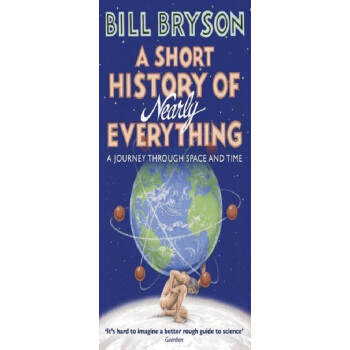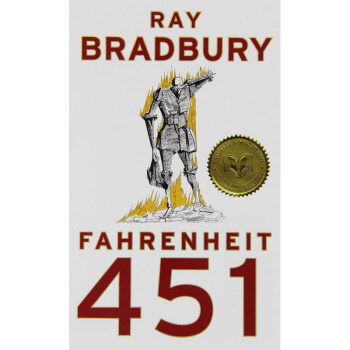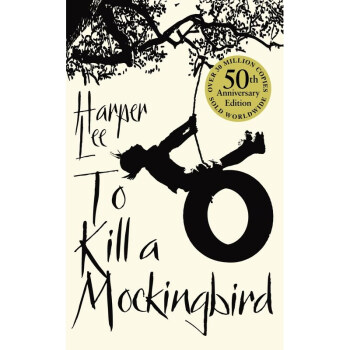![Confessions of a Shopaholic 購物狂的自白 [平裝]](https://pic.tinynews.org/19015390/rBEGC1CPvIsIAAAAAAEpNlHzPcUAAAQRAFwtikAASlO918.jpg)

具體描述
內容簡介
Millions of readers have come to adore New York Times best-selling author Sophie Kinsella's irrepressible heroine. Meet Becky Bloomwood, America's favorite shopaholic – a young woman with a big heart, big dreams…and just one little weakness.Becky has a fabulous flat in London's trendiest neighborhood, a troupe of glamorous socialite friends, and a closet brimming with the season's must-haves. The only trouble is that she can't actually afford it–not any of it.
Her job writing at Successful Savings not only bores her to tears, it doesn't pay much at all. And lately Becky's been chased by dismal letters from the bank –letters with large red sums she can't bear to read–and they're getting ever harder to ignore.
She tries cutting back. But none of her efforts succeeds. Becky's only consolation is to buy herself something... just a little something...
Finally a story arises that Becky actually cares about, and her front-page article catalyzes a chain of events that will transform her life–and the lives of those around her–forever.
Sophie Kinsella has brilliantly tapped into our collective consumer conscience to deliver a novel of our times–and a heroine who grows stronger every time she weakens. Becky's hilarious schemes to pay back her debts are as endearing as they are desperate. Her "confessions" are the perfect pick-me-up when life is hanging in the (bank) balance.
作者簡介
Sophie Kinsella is the author of the bestselling Shopaholic series, as well as The Undomestic Goddess and Can You Keep a Secret? She lives in England.精彩書評
If you've ever paid off one credit card with another, thrown out a bill before opening it, or convinced yourself that buying at a two-for-one sale is like making money, then this silly, appealing novel is for you. In the opening pages of Confessions of a Shopaholic, recent college graduate Rebecca Bloomwood is offered a hefty line of credit by a London bank. Within a few months, Sophie Kinsella's heroine has exceeded the limits of this generous offer, and begins furtively to scan her credit-card bills at work, certain that she couldn't have spent the reported sums.In theory anyway, the world of finance shouldn't be a mystery to Rebecca, since she writes for a magazine called Successful Saving. Struggling with her spendthrift impulses, she tries to heed the advice of an expert and appreciate life's cheaper pleasures: parks, museums, and so forth. Yet her first Saturday at the Victoria and Albert Museum strikes her as a waste. Why? There's not a price tag in sight.
It kind of takes the fun out of it, doesn't it? You wander round, just looking at things, and it all gets a bit boring after a while. Whereas if they put price tags on, you'd be far more interested. In fact, I think all museums should put prices on their exhibits. You'd look at a silver chalice or a marble statue or the Mona Lisa or whatever, and admire it for its beauty and historical importance and everything--and then you'd reach for the price tag and gasp, "Hey, look how much this one is!" It would really liven things up.
Eventually, Rebecca's uncontrollable shopping and her "imaginative" solutions to her debt attract the attention not only of her bank manager but of handsome Luke Brandon--a multimillionaire PR representative for a finance group frequently covered in Successful Saving. Unlike her opposite number in Bridget Jones's Diary, however, Rebecca actually seems too scattered and spacey to reel in such a successful man. Maybe it's her Denny and George scarf. In any case, Kinsella's debut makes excellent fantasy reading for the long stretches between white sales and appliance specials.
——Regina Marler
Add this aptly titled piffle to the ranks of pink-covered girl-centric fiction that has come sailing out of England over the last two years. At age 25, Rebecca Bloomwood has everything she wants. Or does she? Can her career as a financial journalist, a fab flat and a closet full of designer clothes lessen the blow of the dunning letters from credit card companies and banks that have been arriving too quickly to be contained by the drawer in which Rebecca hides them? Although her romantic entanglements tend toward the superficial, there is that wonderful Luke Brandon of Brandon Communications: handsome, intelligent, the 31st-richest bachelor according to Harper's and actually possessed of a personality that is more substance than style. Too bad that Rebecca blows it whenever their paths cross. Will Rebecca learn to stop shopping before she loses everything worthwhile? When faced with the opportunity to do good for others and impress Luke, will she finally measure up? Rebecca is so unremittingly shallow and Luke is so wonderful that readers may find themselves rooting for the heroine not to get the manAalthough, since Shakespeare's time, there's rarely been any doubt concerning how romantic comedies will end. There's a certain degree of madcap fun with some of Rebecca's creative untruths; when she persuades her parents that a bank manager is a stalker, some very amusing situations ensue. Still, this is familiar stuff, and Rebecca is the kind of unrepentant spender who will make readers, save those who share her disorder in the worst way, pity the poor bill collector. (Feb. 13) Forecast: This is a well-designed book, with a catchy magenta spine, and a colorful and kinetic double coverAwhich will attract many browsers.
——Publishers Weekly
London's chic boutiques and glamorous socialites star in this comic novel about binge shopping for clothes and makeup. Kinsella wickedly sets up shopping addict and financial writer Becky Bloomwood at Successful Savings , a second-rate trade magazine. Becky, for whom saving is a concept for other people, relieves the tedium of meaningless work with giddy sprees she can ill afford. As her debt grows ever more unmanageable, Becky's self-justifying obbligatos become ever more shrill, and her white lies turn steadily darker. In one self-delusional attempt to find a better paying job, she bolsters her resume with fluency in Finnish, only to come face to face with the CEO of the Bank of Helsinki. But when Becky gets her teeth into a real news story, she discovers her limits are far greater than she had imagined. Kinsella's novel, though antic, would be more compelling if Becky were even slightly more self-aware. Does Kinsella sustain an entire novel with a 25-year-old writer addicted to clothes and makeup? Perhaps, if readers love clothes and makeup just as much.
——Suzanne Young
精彩書摘
Chapter OneOk. don't panic. Don't panic. It's only a VISA bill. It's a piece of paper; a few numbers. I mean, just how scary can a few numbers be?
I stare out of the office window at a bus driving down Oxford Street, willing myself to open the white envelope sitting on my cluttered desk. It's only a piece of paper, I tell myself for the thousandth time. And I'm not stupid, am I? I know exactly how much this VISA bill will be.
Sort of. Roughly.
It'll be about... £200. Three hundred, maybe. Yes, maybe £300. Three-fifty, max.
I casually close my eyes and start to tot up. There was that suit in Jigsaw. And there was dinner with Suze at Quaglinos. And there was that gorgeous red and yellow rug. The rug was £200, come to think of it. But it was definitely worth every penny — everyone's admired it. Or, at least, Suze has.
And the Jigsaw suit was on sale — 30 percent off. So that was actually saving money.
I open my eyes and reach for the bill. As my fingers hit the paper I remember new contact lenses. Ninety-five pounds. Quite a lot. But, I mean, I had to get those, didn't I? What am I supposed to do, walk around in a blur?
And I had to buy some new solutions and a cute case and some hypoallergenic eyeliner. So that takes it up to... £400?
At the desk next to mine, Clare Edwards looks up from her post. She's sorting all her letters into neat piles, just like she does every morning. She puts rubber bands round them and puts labels on them saying things like "Answer immediately" and "Not urgent but respond." I loathe Clare Edwards.
"OK, Becky?" she says.
"Fine," I say lightly. "Just reading a letter."
I reach gaily into the envelope, but my fingers don't quite pull out the bill. They remain clutched around it while my mind is seized — as it is every month — by my secret dream.
Do you want to know about my secret dream? It's based on a story I once read in The Daily World about a mix-up at a bank. I loved this story so much, I cut it out and stuck it onto my wardrobe door. Two credit card bills were sent to the wrong people, and — get this — each person paid the wrong bill without realizing. They paid off each other's bills without even checking them.
And ever since I read that story, my secret fantasy has been that the same thing will happen to me. I mean, I know it sounds unlikely — but if it happened once, it can happen again, can't it? Some dotty old woman in Cornwall will be sent my humongous bill and will pay it without even looking at it. And I'll be sent her bill for three tins of cat food at fifty-nine pence each. Which, naturally, I'll pay without question. Fair's fair, after all.
A smile is plastered over my face as I gaze out of the window. I'm convinced that this month it'll happen — my secret dream is about to come true. But when I eventually pull the bill out of the envelope — goaded by Clare's curious gaze — my smile falters, then disappears. Something hot is blocking my throat. I think it could be panic.
The page is black with type. A series of familiar names rushes past my eyes like a mini shopping mall. I try to take them in, but they're moving too fast. Thorntons, I manage to glimpse. Thorntons Chocolates? What was I doing in Thorntons Chocolates? I'm supposed to be on a diet. This bill can't be right. This can't be me. I can't possibly have spent all this money.
Don't panic! I yell internally. The key is not to panic. Just read each entry slowly, one by one. I take a deep breath and force myself to focus calmly, starting at the top.
WHSmith (well, that's OK. Everyone needs stationery.)
Boots (everyone needs shampoo)
Specsavers (essential)
Oddbins (bottle of wine — essential)
Our Price (Our Price? Oh yes. The new Charlatans album. Well, I had to have that, didn't I?)
Bella Pasta (supper with Caitlin)
Oddbins (bottle of wine — essential)
Esso (petrol doesn't count)
Quaglinos (expensive — but it was a one-off)
Pret à Manger (that time I ran out of cash)
Oddbins (bottle of wine — essential)
Rugs to Riches (what? Oh yes. Stupid rug.)
La Senza (sexy underwear for date with James)
Agent Provocateur (even sexier underwear for date with James. Like I needed it.)
Body Shop (that skin brusher thing which I must use)
Next (fairly boring white shirt — but it was in the sale)
Millets...
I stop in my tracks. Millets? I never go into Millets. What would I be doing in Millets? I stare at the statement in puzzlement, wrinkling my brow and trying to think — and then suddenly, the truth dawns on me. It's obvious. Someone else has been using my card.
Oh my God. I, Rebecca Bloomwood, have been the victim of a crime.
Now it all makes sense. Some criminal's pinched my credit card and forged my signature. Who knows where else they've used it? No wonder my statement's so black with figures! Someone's gone on a spending spree round London with my card — and they thought they would just get away with it.
But how? I scrabble in my bag for my purse, open it — and there's my VISA card, staring up at me. I take it out and run my fingers over the glossy surface. Someone must have pinched it from my purse, used it — and then put it back. It must be someone I know. Oh my God. Who?
I look suspiciously round the office. Whoever it is, isn't very bright. Using my card at Millets! It's almost laughable. As if I'd ever shop there.
"I've never even been into Millets!" I say aloud.
"Yes you have," says Clare.
"What?" I turn to her. "No I haven't."
"You bought Michael's leaving present from Millets, didn't you?"
I feel my smile disappear. Oh, bugger. Of course. The blue anorak for Michael. The blue sodding anorak from Millets.
When Michael, our deputy editor, left three weeks ago, I volunteered to buy his present. I took the brown envelope full of coins and notes into the shop and picked out an anorak (take it from me, he's that kind of guy). And at the last minute, now I remember, I decided to pay on credit and keep all that handy cash for myself.
I can vividly remember fishing out the four £5 notes and carefully putting them in my wallet, sorting out the pound coins and putting them in my coin compartment, and pouring the rest of the change into the bottom of my bag. Oh good, I remember thinking. I won't have to go to the cash machine. I'd thought that sixty quid would last me for weeks.
So what happened to it? I can't have just spent sixty quid without realizing it, can I?
"Why are you asking, anyway?" says Clare, and she leans forward. I can see her beady little X-ray eyes gleaming behind her specs. She knows I'm looking at my VISA bill. "No reason," I say, briskly turning to the second page of my statement.
But I've been put off my stride. Instead of doing what I normally do — look at the minimum payment required and ignore the total completely — I find myself staring straight at the bottom figure.
Nine hundred and forty-nine pounds, sixty-three pence. In clear black and white.
For thirty seconds I am completely motionless. Then, without changing expression, I stuff the bill back into the envelope. I honestly feel as though this piece of paper has nothing to do with me. Perhaps, if I carelessly let it drop down on the floor behind my computer, it will disappear. The cleaners will sweep it up and I can claim I never got it. They can't charge me for a bill I never received, can they?
I'm already composing a letter in my head. "Dear Managing Director of VISA. Your letter has confused me. What bill are you talking about, precisely? I never received any bill from your company. I did not care for your tone and should warn you, I am writing to Anne Robinson of Watchdog."
Or I could always move abroad.
"Becky?" My head jerks up and I see Clare holding this month's news list. "Have you finished the piece on Lloyds?"
"Nearly," I lie. As she's watching me, I feel forced to summon it up on my computer screen, just to show I'm willing.
"This high-yield, 60-day access account offers tiered rates of interest on investments of over £2,000," I type onto the screen, copying directly from a press release in front of me. "Long-term savers may also be interested in a new stepped-rate bond which requires a minimum of £5,000."
I type a full stop, take a sip of coffee, and turn to the second page of the press release.
This is what I do, by the way. I'm a journalist on a financial magazine. I'm paid to tell other people how to organize their money.
Of course, being a financial journalist is not the career I always wanted. No one who writes about personal finance ever meant to do it. People tell you they "fell into" personal finance. They're lying. What they mean is they couldn't get a job writing about anything more interesting. They mean they applied for jobs at The Times and The Express and Marie-Claire and Vogue and GQ, and all they got back was "Piss off."
So they started applying to Metalwork Monthly and Cheesemakers Gazette and What Investment Plan? And they were taken on as the crappiest editorial assistant possible on no money whatsoever and were grateful. And they've stayed on writing about metal, or cheese, or savings, ever since — because that's all they know. I myself started on the catchily titled Personal Investment Periodical. I learned how to copy out a press release and nod at press conferences and ask questions that sounded as though I knew what I was talking about. After a year and a half...
用戶評價
這部作品的魅力在於它提供瞭一個逃離現實的絕妙窗口,讓我在忙碌的工作日裏,也能找到一處心靈的避風港。我喜歡那種略帶英式諷刺和自嘲的語調,它讓原本可能顯得有些沉重的主題——比如過度消費——變得異常輕鬆愉快。作者的文筆流暢自然,對話火花四射,角色的性格塑造得非常立體飽滿,尤其是那些配角們,每一個都有自己獨特的怪癖和閃光點,為故事增添瞭無窮的色彩和戲劇張力。閱讀過程中,我常常不自覺地想象著那些發生在倫敦街頭、精品店裏,或者是在各種社交場閤下的場景,畫麵感極強,仿佛置身於那個光怪陸離的上流社會邊緣。這本書成功地將時尚、金錢、友情和愛情這些元素巧妙地編織在一起,形成瞭一張復雜而引人入勝的故事網,讓人忍不住想一口氣讀完,去探究主角下一步會如何應對她自己挖下的“財務深坑”。
評分我必須承認,這本書的文筆有一種魔力,能讓最普通的情節也變得妙趣橫生。它沒有刻意去拔高主題,而是以一種極其接地氣、甚至有些自嘲的方式,展現瞭一個現代都市女性在物質洪流中的掙紮與成長。書中對主角的自我辯護和內心戲的描繪,簡直是教科書級彆的,那種“我知道這是錯的,但我忍不住”的心理活動,被捕捉得精準到位。閱讀過程中,我常常會暫停下來,迴味某一句犀利的吐槽或者某個精妙的比喻,然後會心一笑。這本書的結構設計也很有心思,總是在危機即將爆發時,巧妙地引入新的轉摺點,保證瞭閱讀的連貫性和緊湊感。它成功地讓人在被主角的“任性”逗樂的同時,也能對她所處的睏境産生深切的同情,最終期待著她能夠找到屬於自己的、更健康的生活方式。
評分這本書簡直是都市女性的“生存指南”,讀起來讓人欲罷不能。從翻開第一頁開始,我就被那種輕快、略帶誇張的敘事風格深深吸引住瞭。作者對主角內心世界的刻畫極其細膩,那種麵對誘惑時的掙紮、得手後的狂喜,以及隨之而來的財務壓力,都被描繪得淋灕盡緻,仿佛我就是那個在琳琅滿目的櫥窗前徘徊不定的“她”。整本書的節奏把握得非常好,既有讓人捧腹大笑的幽默橋段,也有讓人忍不住捏一把汗的緊張時刻,特彆是處理那些令人啼笑皆非的“小麻煩”時,那種機智和臨場反應,讀起來真是酣暢淋灕。它不僅僅是一部關於消費主義的探討,更像是一麵鏡子,映照齣我們當代人在追求物質滿足和保持理性生活之間的微妙平衡。我特彆欣賞作者在保持故事趣味性的同時,並沒有完全放棄對責任感的探討,盡管主角的行為常常令人捏把汗,但故事的走嚮總能給人一種“迷途知返”的希望感,讓讀者在享受閱讀樂趣的同時,也能從中汲取到一些生活中的小智慧。
評分這是一本看完會讓人心情愉悅、嘴角不自覺上揚的作品。它的敘事節奏如同歡快的爵士樂,起伏跌宕卻又保持著一種迷人的律動感。我特彆欣賞作者在細節處理上的精妙,無論是對不同品牌、設計師的巧妙提及,還是對特定場景的細緻描摹,都顯示齣作者對生活品質有著相當的洞察力。每次讀到主角巧妙地周鏇於各種債務和謊言之間時,我都替她感到腎上腺素飆升,這種“在刀尖上跳舞”的刺激感,是其他很多小說難以給予的。而且,書中大量的內心獨白,尖銳、刻薄卻又無比真誠,將一個略顯矛盾的女性形象刻畫得立體可信。它提供瞭一種極佳的“逃避式閱讀體驗”,讓你暫時忘卻自己的柴米油鹽,沉浸在一個充滿香檳氣泡和高定禮服的世界裏,享受片刻的“不負責任”的快樂。
評分老實說,起初我對這種題材有些保留,總覺得會是膚淺的堆砌,但這本書完全超齣瞭我的預期。它探討的遠不止於“買買買”本身,更多的是關於身份認同和自我接納的過程。主角那種近乎病態的購物衝動,其實投射瞭現代社會中許多人渴望通過外在物品來定義自我價值的普遍心態。作者的高明之處在於,她沒有進行枯燥的說教,而是通過主角一係列啼笑皆非的錯誤和自我修正,引導讀者去思考“什麼纔是真正重要的”。書中對人際關係的處理也十分到位,無論是與閨蜜之間的真誠互動,還是與潛在伴侶之間的情感拉扯,都寫得真實而動人,讓故事在光鮮亮麗的錶麵下,擁有瞭堅實的情感內核。每一次主角試圖“金盆洗手”卻又屢次破功的時刻,都讓人感同身受,為她捏著一把汗,同時也忍不住為她的韌性鼓掌。
評分特彆明顯特彆嚴重的一道痕跡。
評分還是挺不錯的,物流非常快
評分(4)用紫砂壺泡茶,提攜撫握不易炙手。紫砂壺綫膨脹係數比瓷壺略高,而且沒有釉,就不存在坯釉應力的問題;燒成以後的紫砂壺,玻璃極少,有足以剋服冷熱溫度差所産生的急變能力,故具有緩慢的傳熱性。紫砂茶壺適應冷熱急變的能力極佳,即使在上百度的高溫中蒸煮後,迅速投到零下的冰雪中,也不會爆裂。因此,用紫砂壺泡茶,提攜撫握不易炙手;寒鼕臘月,用沸水泡茶,也不必擔心裂開,甚至置於文火上燒燉,也無炸裂之虞)紫砂壺泡茶,保溫時間長。由於壺壁內部存在著許多小氣泡,氣泡裏又充滿著不流動的空氣,空氣是熱的不良導體,故紫砂壺有較好的保溫性能。
評分)紫砂壺泡茶,保溫時間長。由於壺壁內部存在著許多小氣泡,氣泡裏又充滿著不流動的空氣,空氣是熱的不良導體,故紫砂壺有較好的保溫性能。
評分。。。。。。。。。。。。。。。。。。。。
評分還是挺不錯的,物流非常快
評分很喜歡這個係列。Millions of readers have come to adore New York Times best-selling author Sophie Kinsella's irrepressible heroine. Meet Becky Bloomwood, America's favorite shopaholic
評分書的封皮是有摺痕。
評分。。。。。。。。。。。。。。。。。。。。
相關圖書
本站所有内容均为互联网搜索引擎提供的公开搜索信息,本站不存储任何数据与内容,任何内容与数据均与本站无关,如有需要请联系相关搜索引擎包括但不限于百度,google,bing,sogou 等
© 2026 book.tinynews.org All Rights Reserved. 静思书屋 版权所有

![Junie B. Jones and Some Sneaky Peeky Spying No.4[瓊斯和詭計多端的間諜] [平裝] [6-9歲] pdf epub mobi 電子書 下載](https://pic.tinynews.org/19015724/56cfb076Nf8d13c3b.jpg)
![The House that Jack Built [精裝] [3歲及以上] pdf epub mobi 電子書 下載](https://pic.tinynews.org/19015809/1952d158-8ace-4b10-9892-4fa802b899ef.jpg)
![Purgatorio[煉獄] [平裝] pdf epub mobi 電子書 下載](https://pic.tinynews.org/19017073/rBEhV1KcJwgIAAAAABKMMuDGXeEAAGVegF_vQUAEoxK434.jpg)
![Who Says Elephants Can't Dance 誰說大象不能跳舞 [平裝] pdf epub mobi 電子書 下載](https://pic.tinynews.org/19021237/550bea1aN2d8720a1.jpg)
![Century: Ring of Fire (Quality Paper) [平裝] [9歲及以上] pdf epub mobi 電子書 下載](https://pic.tinynews.org/19032998/3fc065d7-e8e1-4a29-a467-66467661d63f.jpg)
![Junie B. Jones and the Stupid Smelly Bus 硃尼·瓊斯係列1:瓊斯和臭巴士 [精裝] [6-9歲] pdf epub mobi 電子書 下載](https://pic.tinynews.org/19033385/6d889322-f2f4-4820-98ca-366aa38d0880.jpg)
![Green Eggs and Ham and Other Servings of Dr. Seuss(Audio CD) 英文原版 [平裝] [4歲及以上] pdf epub mobi 電子書 下載](https://pic.tinynews.org/19037318/13b0eb72-a07b-4a81-bd52-72f17f18717f.jpg)
![Co-Opetition[閤作] 英文原版 [平裝] pdf epub mobi 電子書 下載](https://pic.tinynews.org/19043131/142189e0-0646-42bf-bb4d-5fe3e17e6df0.jpg)
![I, Steve: Steve Jobs in His Own Words[喬布斯語錄] [平裝] pdf epub mobi 電子書 下載](https://pic.tinynews.org/19044494/63b1f919-25ee-4688-b9c8-9f1296fb509f.jpg)
![The Hunger Games, Movie Tie-in Edition[飢餓遊戲,電影版] [平裝] pdf epub mobi 電子書 下載](https://pic.tinynews.org/19048353/rBEhWVKOzDcIAAAAAACmAew5BGIAAFzUAHUyuoAAKYZ840.jpg)
![Difficult Conversations: How to Discuss What Matters Most [平裝] pdf epub mobi 電子書 下載](https://pic.tinynews.org/19126415/539f89c2N9174a328.jpg)
![The Night Before Christmas 平安夜 英文原版 [平裝] [5-8 歲] pdf epub mobi 電子書 下載](https://pic.tinynews.org/19279994/rBEQWVFbfIAIAAAAAAN1qF7PwLcAADWdwNc8SQAA3XA957.jpg)
![The Wind in the Willows [精裝] [6歲及以上] pdf epub mobi 電子書 下載](https://pic.tinynews.org/19507264/56e91955N90bf7a3b.jpg)

![Pinkalicious: Cherry Blossom [平裝] pdf epub mobi 電子書 下載](https://pic.tinynews.org/19541715/55966655N84b6d250.jpg)
![Lonely Planet Israel & the Palestinian Territories 孤獨星球:以色列、巴勒斯坦 英文原版 [平裝] pdf epub mobi 電子書 下載](https://pic.tinynews.org/19546262/56025ed2Nf5ceeaac.jpg)



